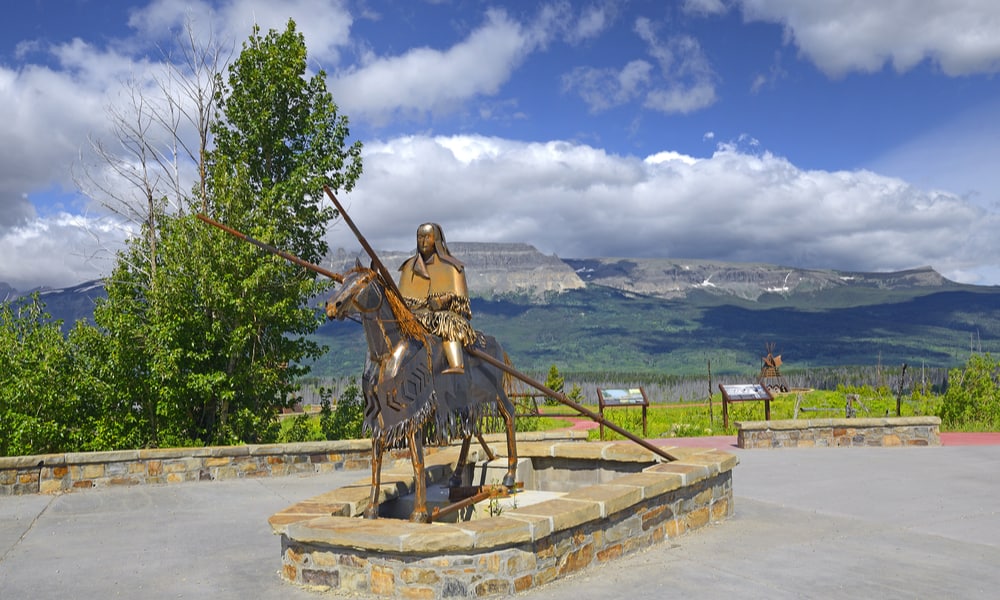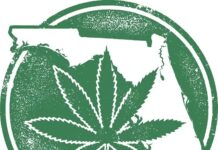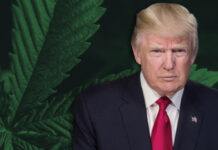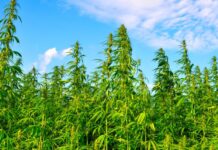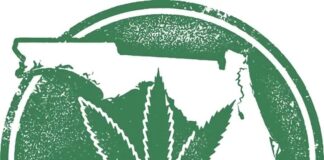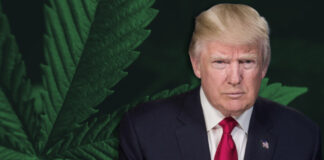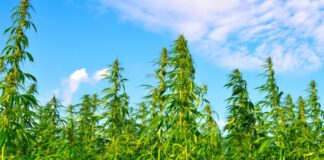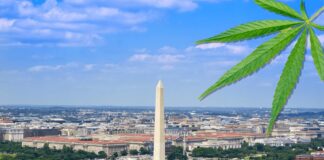
Last week, the governing body of the Blackfeet Nation, located in northwest Montana, amended its Constitution to allow its more than 17,300 members access to legal medical cannabis. The small change addresses the nation’s law barring the sale, possession and use of dangerous drugs, creating an exemption for medical cannabis only.
Blackfeet Tribal Business Council Decriminalizes Medical Cannabis
A resolution by the Executive Committee and the Tribal Business Council of the Blackfeet Nation passed last week amends an ordinance to decriminalize the possession of medical marijuana. Tribal sovereignty gives First Nations the power to enact laws that are different from their surrounding states’. But in the US, First Nations are still subject to federal jurisdiction. And as a result, many have been reticent to legalize medical cannabis ahead of their surrounding states or even in accordance with them.
Montana, which surrounds the Blackfeet Nation, legalized medical cannabis in 2004 and overhauled its program in 2016. Yet the medical use of cannabis remained illegal on the Blackfeet Reservation. In 2014, Obama’s Justice Department signaled a shift in federal enforcement posture, adopting a hands-off policy that would let tribal governments shape their own cannabis policy. But Trump’s DOJ, headed by the anti-cannabis extremist Jeff Sessions, rekindled fears of a federal crackdown in 2016 and has been keeping up the threat ever since.
But after input from members of the community, the Blackfeet Tribal Business Council moved to allow members to possess medical cannabis obtained according to Montana law. In other words, members of the Blackfeet nation can lawfully possess and take medical cannabis treatments on the Blackfeet Reservation, as long as members obtain cannabis from a licensed physician and dispensary in Montana. The manufacture, sale, distribution, and any kind of exchange involving cannabis remain strictly illegal under Ordinance 95 of the Blackfeet Constitution.
Medical Cannabis Legalization Comes Amid Alcohol and Drug Abuse Crisis
The Pikuni Press published the Blackfeet Tribal Business Council’s resolution to its Facebook page Monday. Yet the council has yet to issue an official statement about the amendment. In many respects, they appear to be downplaying the change. But even though the amendment is a minor one, it is nonetheless extremely significant.
The final clause of the resolution cites the current medical data on medical cannabis, particularly as it relates to pain management and alternatives to addictive and dangerous prescription medications. “The Blackfeet Tribal Business Council acknowledges and respects patient rights,” the resolution concludes, “to choose lawful alternative medicine as prescribed by a medical board certified physician.”
Those arguments are familiar. In fact, they’re the exact arguments lawmakers made in New York earlier this summer when they added opioid replacement as a qualifying condition for medical cannabis. And they’re the same arguments made by a growing and increasingly vocal chorus of caregivers, patients and even professional athletes.
The same day that it amended the “dangerous drugs” ordinance, the council declared a drug and alcohol abuse state of emergency on the Blackfeet Reservation. And in light of that declaration, the council’s decision not to immediately announce the decriminalization of medical cannabis begins to make more sense. The Great Falls Tribune reports that the state of emergency declaration came at the request of the Silent Warriors, a local grassroots effort to reduce drug and alcohol addiction.
Could Legal Medical Cannabis Help Combat Substance Abuse?
Indigenous peoples’ traditional medicinal and healing practices have been historically and systematically marginalized by the tenants of Western medical practice, even as those practices and the knowledges on which they’re built have made foundational contributions to American medicine. Plato said all knowledge is remembering. And the United States is returning to embracing knowledge about cannabis after nearly a century of forgetting. Yet Indigenous Americans have always recognized the medicinal and therapeutic capabilities of natural and herbal medicines, including cannabis. Now and going forward, access to medical cannabis will bring relief to Blackfeet Nation members suffering from serious illness. Hopefully, it can also help contribute to efforts to fight substance abuse.


